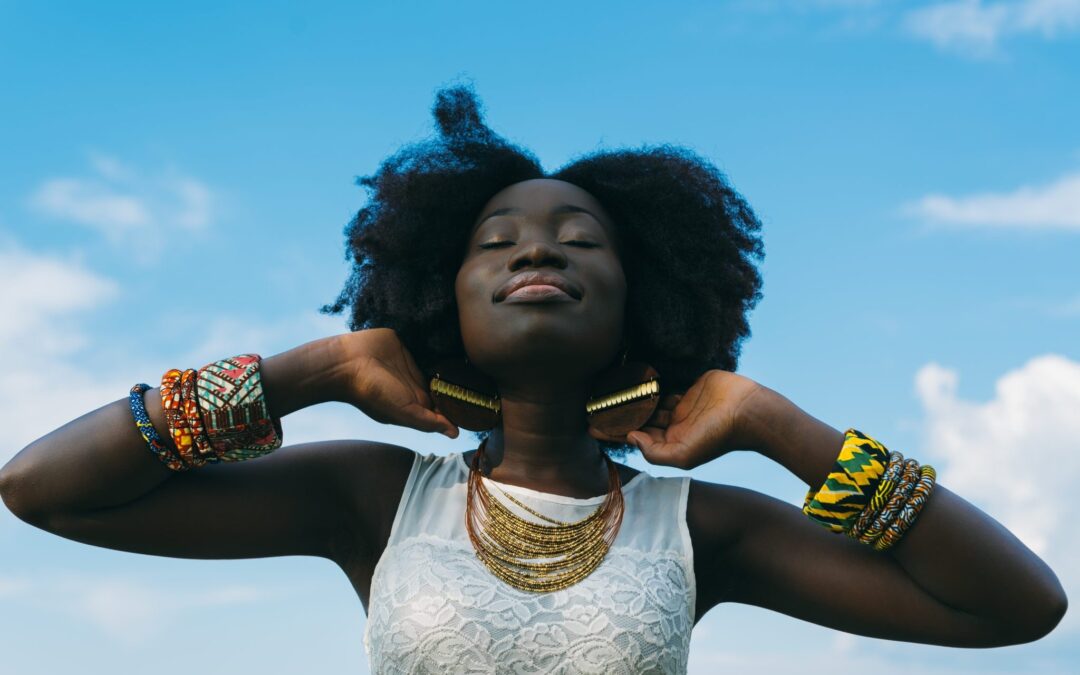Since the Black Lives Matter movement in 2020, society has faced a reckoning with how racism pervades daily life and shapes the world that we live in. Living in a country with an active history of colonialism means that whether it is policing, housing, or employment, it is impossible to escape the impact of racism. While it might be a lesser discussed topic, hair is one of the most fascinating entry points to understanding anti-Black racism as it offers a unique view into the history, identity, struggles, and triumphs of Black people. Something as seemingly inconsequential as the hair that grows naturally of our heads can illuminate how Black people experience both individual and systemic racism in daily life.
Looking first at the interpersonal level, those of us with Black (textured, curly) hair are highly aware that from first dates to job interviews, how our hair is styled will impact how we are perceived by others. While the mainstream beauty industry is changing to be more inclusive of a variety of hair types, euro-centric beauty standards, such as sleek, flowing hair dominate the idea of what is considered “normal”, healthy, and beautiful hair. Among other factors, scant positive representation of the diversity and beauty of Black hair not only serves to foster deep insecurities in many Black people (and an industry of products to alter or hide our natural textures), but also creates a breeding ground for microaggressions and discrimination from viewing highly textured hair as unattractive, unfeminine, and deviant from what is considered normal and acceptable. These forms of racism can look like thinly veiled insults such as such as “your hair looks great when you straighten it!” to employers pressuring Black employees to change hair styles to something they deem more “professional”.
How the hair & beauty industry is organized in most of North America also reinforces the normalization of Caucasian hair types and the marginalization of textured hair. For example, although progress is being made, the Alberta Advanced Education licensing for Hair Stylists does not include textured hair. There is no component of the system that tests for competencies with textured hair, which results in stylists being uneducated and unequipped to serve Black populations. Consequently, Black individuals are not able to simply walk into any salon and expect to receive the same service as someone with straight hair. While these stylists are not necessarily intending to exclude Black people from their salons, the system that trains them centralizes straight hair and euro-centric beauty thus creating inequitable access and treatment for members of the Black community. Those who wish to learn about textured hair are also discouraged to seek training in an industry that will not professionally equip them to deal with the hair types of their clients.
The Natural Hair Movement and movements for changes in legislation and curricula for Black hair have marked progress; however, there is much work to be done. One of the ways to do this is continuing to mobilize knowledge and push for systemic change. In July 2020, Habitus partnered with GOAT Shop to host two presentations on how anti-Blackness manifests in the hair and beauty industry. We had the privilege of hosting PhD researcher from York University Shaunasea Brown and Ryerson University Professor Dr. Cheryl Thompson who spoke about her insightful book Beauty in a Box . Take a look at their work and also that of organizations in Canada advocating for education and celebration of Black hair such as the Edmonton Natural Hair Show and Parting The Roots.
Written by Jasmine Reimer (Research Associate)

